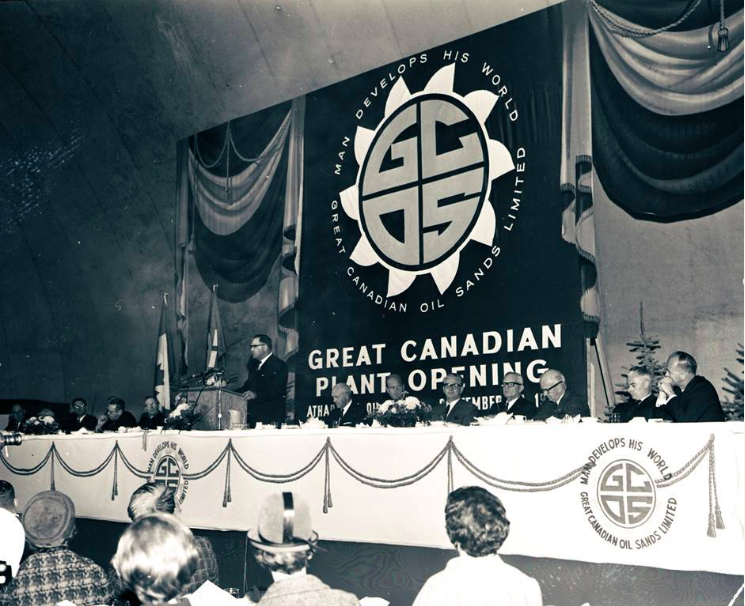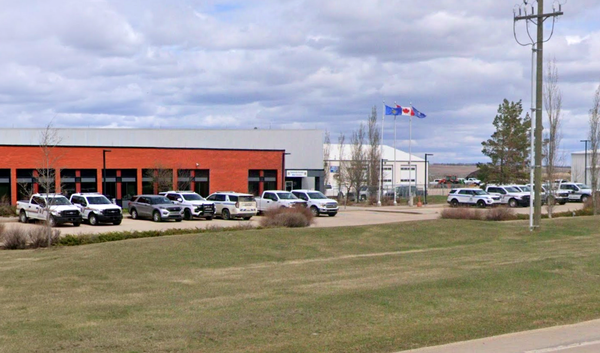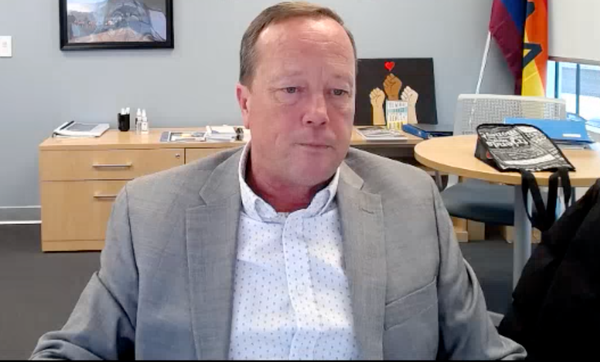Overdose Aware but in the dark about Alberta
Another International Overdose Awareness Day has come and gone. Whoever plans on listening is plenty aware of the problem, but what are we missing about its causes?

August 31 was International Overdose Awareness Day. In Calgary, beneath the oil company towers and amid our city’s most criminalized and neglected, a small group of activists marched a casket from Central Memorial Park and dropped it on the steps of City Hall.
Meanwhile, the legal teams at Engel Law Office and Nanda and Company jointly announced a lawsuit against the City of Edmonton to halt encampment evictions.
Why target the City — shouldn’t we be protesting the provincial government? They are, after all, the obvious bad guys in all this.
Not so fast. Municipal governments play three clear roles in the massacre that has unfolded in our streets through this neoliberal golden age. First, they control the police. Police enforcement of drug laws — a conscious choice by municipalities — drives unregulated drug poisoning deaths. Second, they control encampment evictions, which increase deaths of unhoused people who use drugs. Third, prohibitive zoning laws halt densification. Among other civic policies, this contributes to houselessness through higher cost of living and lower housing availability.
It shouldn’t surprise anyone when the outcomes of these policy decisions cross paths. And when the Government of Alberta drops an elbow on municipal governments through such measures as planting allies on Calgary Police Commission or setting up bodies like the Public Safety and Community Response Task Force — totally unaccountable to the City — we must take note and prepare to respond.
I recently had a week away with family and took full advantage by plowing through Fire Weather. In it, John Vaillant provides a terrifying history of the fire that levelled Fort McMurray in May 2016 alongside a biography of the oil industry’s hold on Alberta politics. A theme Vaillant absently fusses at like corn husk in his teeth is the role of evangelical Christianity in shaping climate policy.

What many of us active in Alberta’s drug policy space easily lose sight of is that our opposition isn’t “the government” — not exactly. These are just the people representing the financial interests calling the shots. And while I spend plenty of time hammering at politicians like Mike Ellis or Dan Williams, they really are just sock puppets. I mean, do these guys seriously project “upper management”?

No. They don’t.
To get closer to those driving the intensifying fire weather of drug prohibition in Alberta, we need to understand who pushes them to create policy. In this government, that’s largely Marshall Smith, Premier Smith’s chief of staff.
But who’s driving Marshall Smith?
To get behind this curtain, we need to link past to present in Alberta. Generational amnesia has set in around Alberta’s evangelical politics from the 1930s Premier “Bible Bill” Aberhart to his protege Premier Ernest Manning. Manning is widely credited with opening up the oil sands on the Canadian side.
Bringing corporate American dollars to the table was J. Howard Pew, namesake of Howard Pew Memorial Park in Fort McMurray. These two men built their alliance through their mutual friendship with none other than evangelical minister Billy Graham.
Here, I’m turning to Extracted Truths: The Politics of God and Black Gold on a Global Stage, Chapter 7 in Outside In: The Transnational Circuitry of US History published by Oxford University Press in 2016.
In it, the authors assert
“this fruitful partnership of oil and evangelical Protestantism was the product of a world system, in which theologies of resource management, corporate and churchly alliances, financial incentives and political interests, and outcomes of lasting import flowed into and out of northern Alberta from multiple angles.”
This closely reflects modern Alberta. What I and others have flagged repeatedly is the appearance of evangelical Christian control of Calgary Police and addiction treatment across Alberta — and how these intersect at municipal and provincial levels.
As a case in point: how did the Director of Wellness & Resiliency at Calgary Police, resigning amid an apparent religious neutrality scandal, immediately secure high-level employment at Edgewood Health Network? Edgewood is the operator of the Red Deer Therapeutic Community, the first such addiction facility of eleven planned across the province.
Soon after all this played out, why did the Government of Alberta pass legislation to appoint city police commissioners, then hand-pick Dr. Robert Tanguay for Calgary Police Commission? The conflict of interest in handing him power over police couldn’t be more obvious: his business is the Newly Institute, a psychedelic addiction and trauma treatment facility specifically tailored to police officers and members of the armed forces.
But what’s the unifying motivation? In other words, what purpose is served by linking industrial, government and religious activities?
“in [Pew’s] eyes, preserving the purity of the Protestant church and the purity of oil’s founding spirit were the same, since both sought preservation of the uncompromising, pioneering individualism that centered American Christianity and capitalism.”
If we consider addiction treatment as an extractive industry — and why not, given the untold investments being poured into private Alberta operators such as Edgewood Health Network or the hundreds of millions in corporate welfare being dispensed by the Government of Alberta? — then we can arrive full-circle back at the oil sands development playbook.
Modern evangelicals have turned their attention to the very control of the human body.
It shows up in who does and does not get access to regulated psychoactive drugs and abortion.
It shows up in “parenting” rights over trans youth.
And, I’d argue, it shows up in who gains access to municipal housing: our treatment-first model places housing downstream of accepting the religious 12 Steps and beginning a “recovery journey.”
It’s not about spirituality. It’s about resource control and extraction — in a modern context, the human body.
“Contrary to common renderings of modern evangelical politics, however, which tend to focus on narrow culture-war concerns, these values encompassed much more than diktats about home and hearth. For Pew, Manning, LeTourneau, and their brethren, the quest was always about something bigger on a larger stage: the right to extract all of the bountiful gifts of the great Creator in ways that affirmed their authority over the earth in its boundless entirety.”
There’s a Gang of Four song I couldn’t shake out of my head yesterday as I gaped at the disconnect between the reality of the unregulated drug toxicity on the streets and the addiction treatment evangelicalism issued via government press releases on behalf of drug war profiteers:
The body is good business
Sell out, maintain the interest
Remember Lot's wife
Renounce all sin and vice
Dream of the perfect life
This heaven gives me migraine
This heaven gives me migraine
This heaven gives me migraine





